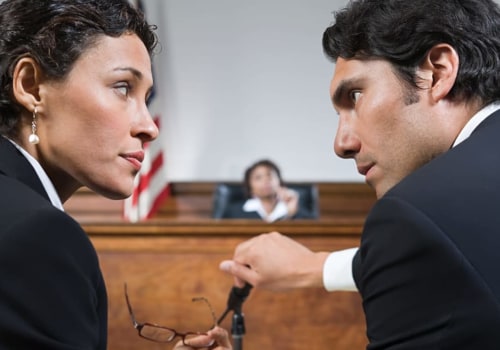You should always tell your Criminal Defense Lawyer near Lake Keowee SC the truth. You can't defend him effectively if you're lying to him. If you have been charged with a crime and are guilty, you may be wondering if this is something you should tell your Criminal Defense Lawyer near Lake Keowee SC. You may have no intention of pleading guilty and you may be concerned about how well your Criminal Defense Lawyer near Lake Keowee SC can represent you if you admit your guilt to them. You should definitely let your Criminal Defense Lawyer near Lake Keowee SC know if you are guilty and you should never hide this information in your communications with them. You should always tell your Criminal Defense Lawyer near Lake Keowee SC the truth. You can't defend him effectively if you're lying to him. If you have been charged with a crime and are guilty, you may be wondering if this is something you should tell your Criminal Defense Lawyer near Lake Keowee SC. You may have no intention of pleading guilty and you may be concerned about how well your Criminal Defense Lawyer near Lake Keowee SC can represent you if you admit your guilt to them. You should definitely let your Criminal Defense Lawyer near Lake Keowee SC know if you are guilty and you should never hide this information in your communications with them.
Criminal defense attorneys
have an ethical obligation to zealously represent all clients and to maintain attorney-client privilege.You can admit your guilt to your lawyer and know that your lawyer will continue to fight for you and will not repeat what you say to anyone without your permission. Your lawyer's job is to defend you and make sure you have a fair trial, not to decide if you're innocent or guilty. That's for the jury or the judge. But if you decide to confess to your lawyer, know that your lawyer cannot allow you to testify at trial knowing that you intend to deny having committed the crime. Lawyers cannot knowingly allow anyone, including clients, to offer false testimony in court.
Ultimately, if you decide to tell your lawyer the truth, it should be the only truth and not something that you change your mind about later. Your lawyer cannot present arguments or give evidence that you know to be false, and he cannot allow you to knowingly lie to the court (perjury). The best thing to do is to tell your lawyer exactly what you want you to say. There are some attorneys who don't want to hear the details of the case on their part because they prefer not to limit the scope of their defense.
Your defense attorney is there to represent you in court and to ensure, to the best of your ability, that there are reasonable doubts that you may not have committed the crime. An attorney was charged with unclear public health laws, but the charge was eventually dropped due to attorney-client privilege. At some point, defendants and their attorneys inevitably discuss the facts underlying criminal charges. You should also keep in mind that your lawyer cannot lie on your behalf, as this violates the ethical standards required of lawyers. If you are charged with a crime, your lawyer must know all the facts to craft a strong defense strategy. You don't have to be innocent for your lawyer to make an argument that you are not guilty of the crime you are charged with.
The attorneys at Burnham Law are committed to working closely with you to summarize the facts of your case and turn them into a strong and beneficial one. If the client admits to her lawyer that she killed the man, but describes the tremendous physical and emotional trauma she previously suffered at the hands of him, the lawyer can present a compelling defense based on the history of abuse. Lawyers also cannot keep private information if it is reasonably believed that its disclosure would be necessary to prevent certain death or substantial bodily harm. You might, for example, be tempted to completely deny that you've been involved in a fight without realizing that you have a powerful self-defense argument. The attorneys at Burnham Law are committed to working closely with you to summarize the facts of your case and turn them into a strong and beneficial one. If the client admits to her lawyer that she killed the man, but describes the tremendous physical and emotional trauma she previously suffered at the hands of him, the lawyer can present a compelling defense based on the history of abuse. Lawyers also cannot keep private information if it is reasonably believed that its disclosure would be necessary to prevent certain death or substantial bodily harm. You might, for example, be tempted to completely deny that you've been involved in a fight without realizing that you have a powerful self-defense argument.
The best strategy for someone facing criminal charges is to follow the example of an experienced and trustworthy criminal defense attorney and, no matter what, be honest with that lawyer. An attorney who takes your interests into account will advise you on the possibilities and the best course of action. This means that criminal defense attorneys must do everything they can to defend their clients, even if the lawyer believes that the client is guilty.






